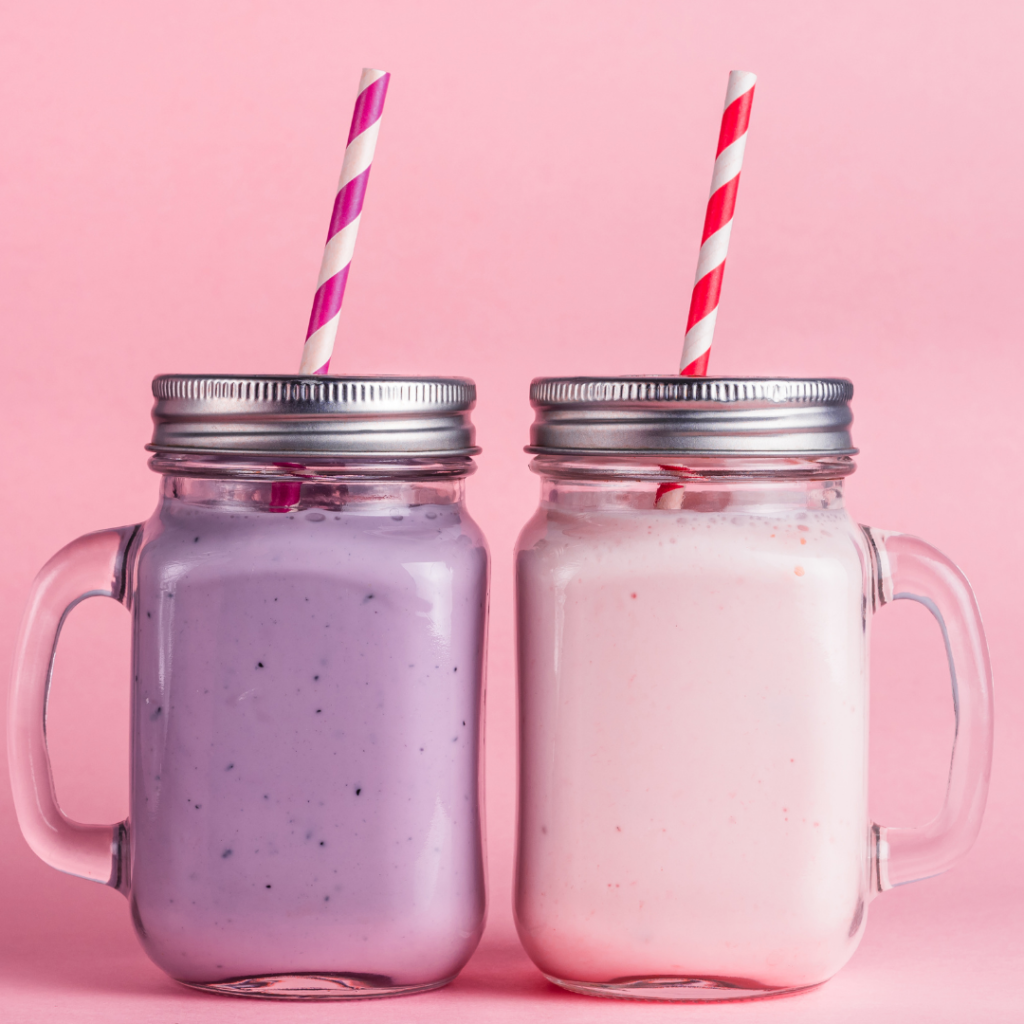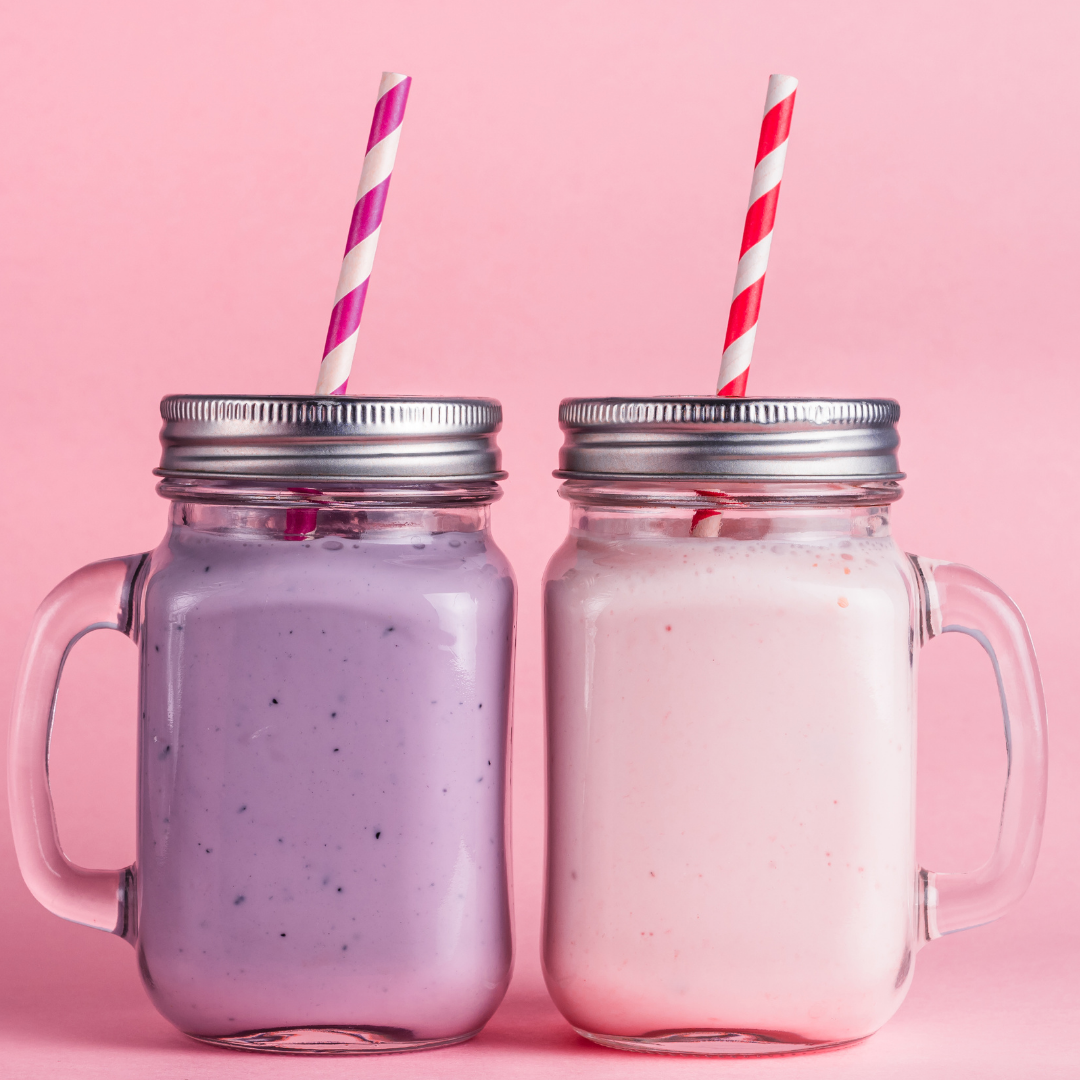
- Why protein is important and why do we need protein
- What are essential amino acids
- What makes a quality protein
- Can protein help you lose weight
- How much protein do I need
- How much protein do I need to build muscle
- Is Protein good for bones
- Protein toxicity, how much protein is excessive
- What are the best protein sources
Protein benefits and why protein is important
Protein is a source of energy, a macronutrient which provides 4kcal per gram.Why do we need protein
We typically associate protein as being needed to build muscle, as it’s required for the growth, repair and maintenance of our body – particularly our muscles & bones. And whilst a large proportion of protein is found in our muscles (43%), protein benefits extend to being so much more than muscle food alone. Proteins are everywhere is our body, after water, protein is the second most abundant compound in our body. Significant amounts of protein are also found in our skin – think collagen and elastin. These proteins give our skin elasticity and rigidity providing the framework for our skin. Keratin is a protein is vital for our hair volume and strength. As we age these proteins decline in both quality and quantity causing our skin to lose firmness and wrinkle.Protein is also found in haemoglobin, our red blood cells.
Protein is also needed to make hormones and enzymes and for immunity.What are proteins
Proteins are molecules made up of long chains of amino acids, commonly referred to as building blocks as they build on one another. There are about 20 different amino acids typically found in animal and plant proteins. When we consume protein in our diet it’s broken down and metabolised into amino acids. Our body then uses these ‘building blocks’ to make new proteins. This ‘protein turnover’ is a clever process whereby proteins are continually being built and then degraded to be re-used as needed.What are essential amino acids
For adults 9 of these 20 amino acids must be obtained from our diet. Our body can produce 11 of these amino acids by itself, but not the remaining 9. These 9 amino acids and called essential amino acids. We need these essential amino acids (EAA) for a wide variety of reactions and functions in our body.Protein benefits – what do amino acids do
Here’s a brief overview of the 9 EAA that we need to get from our diet:- Phenylalanine This amino acid turns into the neurotransmitters tyrosine, dopamine, epinephrine, and norepinephrine. It’s important in the structure and function of proteins and enzymes and the production of other amino acids.
- Threonine A principal part of structural proteins in our skin and connective tissues, such as collagen, elastin and tooth enamel. It also plays a role in immune function and in fat metabolism, prevents fat buildup in the liver. It’s useful with intestinal disorders and indigestion. Threonine has also been used to alleviate anxiety and mild depression.
- Tryptophan A precursor to serotonin, a neurotransmitter that regulates your appetite, mood, pain and sleep. Tryptophan is a natural sedative and has a a role as an antidepressant.
- Methionine Plays an important role in metabolism and detoxification. Methionine also improves the tone and pliability of skin, hair, and strengthens nails. slows cell aging, and is essential for absorption of zinc and selenium. It also prevents excess fat buildup in the liver.
- Valine One of three branched-chain amino acids (BCAAs) on this list. (That means it has a chain branching off from one side of its molecular structure). Valine helps stimulate muscle growth and regeneration and is involved in energy production. Valine also maintains mental vigor, muscle coordination, and emotional calm.
- Leucine Another of the 3 BCAA that is critical for protein synthesis and muscle repair. Leucine also contributes to regulation of blood-sugar levels; growth and repair of muscle and bone tissue; growth hormone production; and wound healing.
- Isoleucine The third of the three BCAAs, it’s involved in muscle metabolism and found in muscle tissue. It has diverse physiological functions, such as assisting wound healing, detoxification of nitrogenous wastes, stimulating immune function, and promoting secretion of several hormones. Necessary for hemoglobin formation and regulating blood sugar and energy levels.
- Lysine Plays major roles in protein synthesis, calcium absorption, also in the production of enzymes and hormones. It’s also important for the production of collagen and elastin. energy production and immune function.
- Histidine Used to produce histamine, a neurotransmitter vital to immune response, digestion, sexual function, and sleep cycles.
- Phenylalanine This amino acid turns into the neurotransmitters tyrosine, dopamine, epinephrine, and norepinephrine. It’s important in the structure and function of proteins and enzymes and the production of other amino acids.
- Threonine A principal part of structural proteins in our skin and connective tissues, such as collagen, elastin and tooth enamel. It also plays a role in immune function and in fat metabolism, prevents fat buildup in the liver. It’s useful with intestinal disorders and indigestion. Threonine has also been used to alleviate anxiety and mild depression.
- Tryptophan A precursor to serotonin, a neurotransmitter that regulates your appetite, mood, pain and sleep. Tryptophan is a natural sedative and has a a role as an antidepressant.
- Methionine Plays an important role in metabolism and detoxification. Methionine also improves the tone and pliability of skin, hair, and strengthens nails. slows cell aging, and is essential for absorption of zinc and selenium. It also prevents excess fat buildup in the liver.
- Valine One of three branched-chain amino acids (BCAAs) on this list. (That means it has a chain branching off from one side of its molecular structure). Valine helps stimulate muscle growth and regeneration and is involved in energy production. Valine also maintains mental vigor, muscle coordination, and emotional calm.
- Leucine Another of the 3 BCAA that is critical for protein synthesis and muscle repair. Leucine also contributes to regulation of blood-sugar levels; growth and repair of muscle and bone tissue; growth hormone production; and wound healing.
- Isoleucine The third of the three BCAAs, it’s involved in muscle metabolism and found in muscle tissue. It has diverse physiological functions, such as assisting wound healing, detoxification of nitrogenous wastes, stimulating immune function, and promoting secretion of several hormones. Necessary for hemoglobin formation and regulating blood sugar and energy levels.
- Lysine Plays major roles in protein synthesis, calcium absorption, also in the production of enzymes and hormones. It’s also important for the production of collagen and elastin. energy production and immune function.
- Histidine Used to produce histamine, a neurotransmitter vital to immune response, digestion, sexual function, and sleep cycles.
What is the best protein
A ‘quality’ protein will have a good amount of these 9 essential amino acids. Animal proteins, including whey protein powder, are typically known as complete proteins as they contain sufficient amounts of these EAA. Most plant sources do not provide all of the essential amino acids in significant quantities and are usually lacking in one or two of the EAA – with the exception of pea protein and soy protein. These are both considered quality, complete proteins, as they contain a sufficient amount of essential amino acids. Whilst this may be a consideration when choosing a vegan protein powder (if that is your only source of protein), there is no longer an issue surrounding whether a protein is ‘complete’ as foods aren’t generally eaten in isolation and it’s now understood that a typical UK diet will include a variety of plant based protein sources which combined will supply enough of all the essential amino acids.What is a good protein
Protein quality also refers to the proteins’ digestibility and how the protein is utilized. Protein digestibility ratings usually involve measuring how the body can efficiently utilize dietary sources of protein. Typically, vegetable protein sources (with some exceptions) do not score as high in ratings of biological value, net protein utilization, Protein Digestibility Corrected Amino Acid Score (PDCAAS), and protein efficiency ratio as animal proteins. The PDCAAS is currently the most accepted and widely used method where you’ll see from the table below that casein, whey protein powder and soy protein all score the maximum of 1.00.| Protein types | Efficiency ratio | Biological value | Net Protein Utilization | PDCASS |
| Beef | 2.9 | 80 | 73 | 0.92 |
| Black Beans | 0 | 0 | 0.75 | |
| Casein | 2.5 | 77 | 76 | 1.00 |
| Eggs | 3.9 | 100 | 94 | 1.00 |
| Milk | 2.5 | 91 | 82 | 1.00 |
| Peanuts | 1.8 | 0.52 | ||
| Soy protein | 2.2 | 74 | 61 | 1.00 |
| Wheat gluten | 0.8 | 64 | 67 | 0.25 |
| Whey protein | 3.2 | 104 | 92 | 1.00 |
Animal protein v plant protein
There have been a number of health concerns raised concerning the risks associated with animal protein. Primarily, these health risks have focused on cardiovascular disease (due to the high saturated fat and cholesterol consumption), bone health (from bone resorption due to sulfur-containing amino acids associated with animal protein) and other physiological system disease. A 2004 study Protein – Which is Best stated that “Vegetable proteins, when combined to provide for all of the essential amino acids, provide an excellent source for protein considering that they will likely result in a reduction in the intake of saturated fat and cholesterol”.Protein benefits – Why protein is important for weight loss
Evidence supports a high protein diet for weight loss:- Protein helps you feel full so less calories are consumed overall
- Protein is thermogenic ie, burns more calories during the digestion process (more than carbs & fats)
- Protein doesn’t raise blood sugar levels and cause insulin spikes like carbohydrates do – helping to keep cravings under control and keeping the body in fat burning mode, as opposed to fat storage mode when insulin is spiked

How much protein do I need
Our protein needs change throughout our life requiring more during pregnancy and also increase as we age. The RDA for an average sedentary adult is 0.8g per kg of bodyweight per day. The RDA is defined as the average daily level of intake sufficient to meet the nutrient requirements of nearly all healthy people. It was derived to estimate the minimum amount of protein that must be eaten to avoid a loss of body nitrogen. This figure has been unchanged for >70 years and in practice it’s been noted to have limitations. The Acceptable Macronutrient Distribution Range (AMDR) (10-35% of calories as protein) was developed to express dietary recommendations in the context of a complete diet, however, it’s worthy to note that even at it’s lowest level of 10% it is higher than that of the RDA. It’s also widely accepted that higher protein needs are seen in athletic populations and in weight management. Furthermore, recent studies, particularly in older people, indicate health benefits at levels of protein intake that significantly exceed the RDA.Protein benefits at menopause – How much protein do I need at menopause
Normal ageing is associated with a loss of muscle mass (sarcopenia). This loss of muscle results in:- decreased muscle function
- increased risk of falls and fractures (especially in post menopause women)
- reduced ability to perform everyday tasks
- reduced quality of life, and
- decreased metabolic rate which can result in weight gain
How much protein do I need to build muscle
Protein is the building blocks of our muscles, so it’s vital you’re getting enough protein if you’re physically active or trying to gain muscle. It’s also important to maintain a high protein intake to help prevent muscle loss during weight loss. Studies examining strength-trained individuals have found that protein powder supplements significantly enhanced changes in muscle strength and size during prolonged resistance training 6> weeks. Increasing age reduces and training experience increases the efficacy of protein powder supplementation during training. It’s been found that for strength trained individuals to maintain a positive nitrogen balance they need to consume a protein intake equivalent to 1g kg day. This is consistent with other studies showing that protein intakes between 1.4 – 2.4g kg day will maintain a positive nitrogen balance in resistance training. As a result, recommendations for strength/power athletes’ protein intake are generally suggested to be between 1.4 – 1.8g kg per day. There does appear to be an upper limit. That said, there is evidence that protein needs increase when athletes restrict calories or have low body fat. Protein needs for energy-restricted resistance-trained athletes are likely 2.3-3.1g/kg of fat free mass scaled upwards with severity of caloric restriction and leanness. Evidence also suggests that protein powder supplements may accelerate gains in both aerobic and anaerobic power. A study found that for untrained individuals, consuming protein supplements likely has no impact on lean mass and muscle strength during the initial weeks of resistance training. However, as the duration, frequency, and volume of resistance training increase, protein powder supplements may promote muscle hypertrophy and enhance gains in muscle strength in both untrained and trained individuals.
Protein benefits – Is protein good for your bones
Dietary proteins are as essential as calcium and vitamin D for bone health and osteoporosis prevention. Studies have found that protein has major bone health benefits. With positive evidence correlating that the higher the protein intake, the lower the bone loss. Studies of bone loss in the elderly have shown that those with the lowest protein intake showed the greatest bone loss. Those with a higher protein diet tend to maintain bone mass better as they age and have a much lower risk of osteoporosis and fractures. This is particularly important for women post menopause who are at higher risk of osteoporosis and fractures.Protein benefits for menopause health
Intake of dietary protein, especially from animal sources, may be associated with a reduced incidence of hip fractures in postmenopausal women. A study looking at 44 cases of hip fractures were included in the analyses of 104338 person-years (the number of subjects studied times the number of years of follow-up) of follow-up data. The risk of hip fracture was not related to intake of calcium or vitamin D, but was negatively associated with total protein intake.Protein toxicity
How much protein is too much – It’s important not to exceed 5g per kg of bodyweight per day (2.3 g of protein per pound) or get more than 35% of your calories from protein. At extremely high doses, your liver and digestive tract can struggle to process protein fast enough, with potential side effects that include high levels of ammonia in the blood, nausea, diarrhea and even death.Best protein sources
Some of the best protein sources include meat, fish, dairy, eggs, beans, peas, lentils, nuts and seeds, with cereals and grains containing smaller amounts. Supplementing with protein powder is also a popular way to additional protein to the diet. Data from the National Diet and Nutrition Survey (NDNS) shows in a typical UK diet, protein is obtained primarily from:- Meat 34%
- Cereals 24%
- Milk / milk products 13%

Plant based protein
Soy’s quality makes it a very attractive alternative for those seeking non-animal sources of protein in their diet and those who are lactose intolerant. Soy is a complete protein with a high concentration of BCAA’s. There have been many reported benefits related to soy proteins relating to health and performance (including reducing plasma lipid profiles, increasing LDL-cholesterol oxidation and reducing blood pressure). Soy is the most widely used vegetable protein source.Soy protein benefits for women
An additional focus of studies investigating soy supplementation has been on women’s health issues. It has been hypothesized that considering that isoflavones are considered phytoestrogens (exhibit estrogen- like effects and bind to estrogen receptors) they compete for estrogen receptor sites in breast tissue with endogenous estrogen, potentially reducing the risk for breast cancer risk.
However, the association between soy intake and breast cancer risk remains inconclusive.
Further studies have demonstrated positive effects of soy protein powder supplements on maintaining bone mineral content and reducing the severity of menopause symptoms.
Best vegan protein powders
Alongside soy, pea protein powder is another popular vegan protein powder and is up there with soy protein powder as one of the best vegan protein powders you can buy. You’ll find non GM soy isolate in Pretty Pea’s Vitamin Shakes and pea protein in Natural Pretty Pea Protein. Go to the website to see the full range of vegan protein powders and quality vitamins for women at www.prettypea.blog

